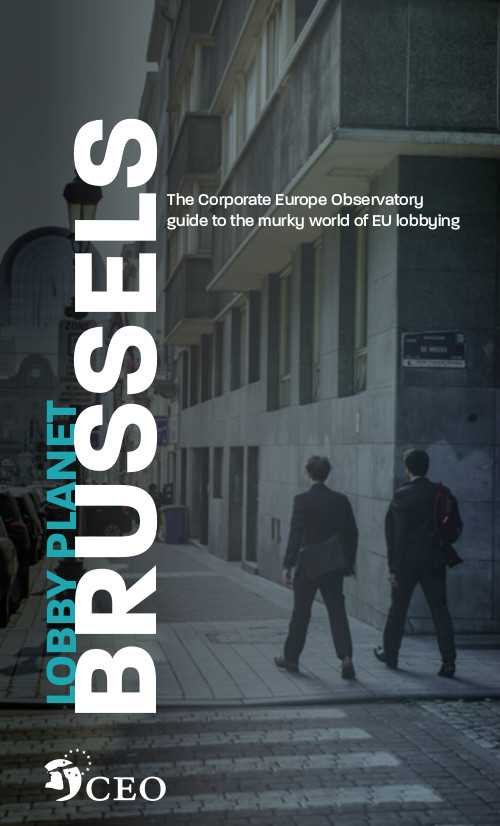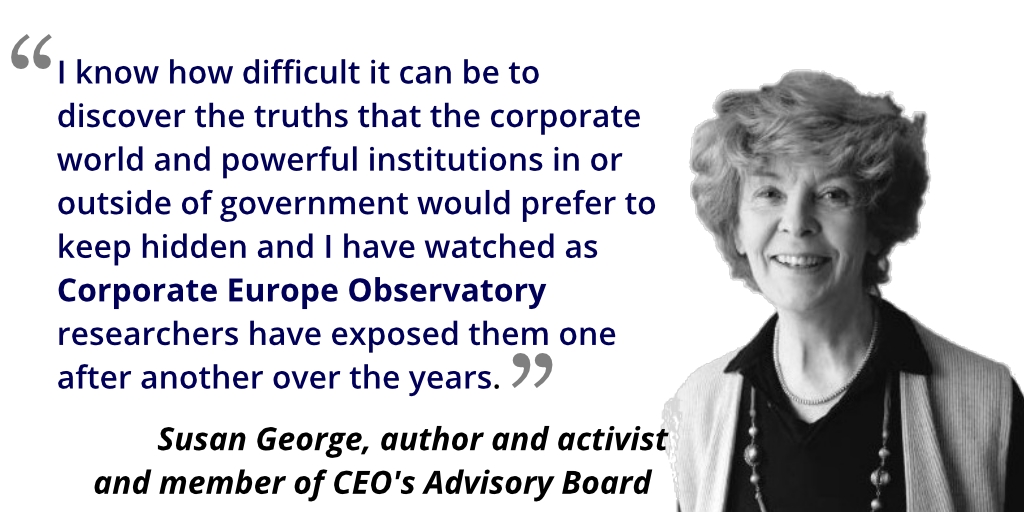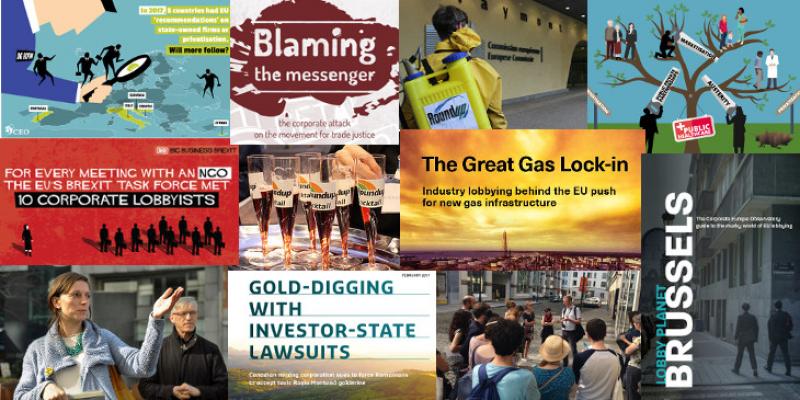
Ten highlights from 2017
A lot happened in 2017, much of which underlined and reinforced the power of corporate lobby groups over EU decisions. As we head towards 2018, it's important to take stock of some of this year’s highlights in our fight against the corporate capture of democracy.
Thank you to everyone who supported us in 2017. To help us continue our work in 2018 and to take on new struggles, please donate today.
1. New guide to corporate lobbying
We published a new edition of our popular guide to corporate lobbying: Lobby Planet in English, French and German (co-published with the Observatoire de Multinationales and LobbyControl). A Spanish translation is scheduled for the new year.
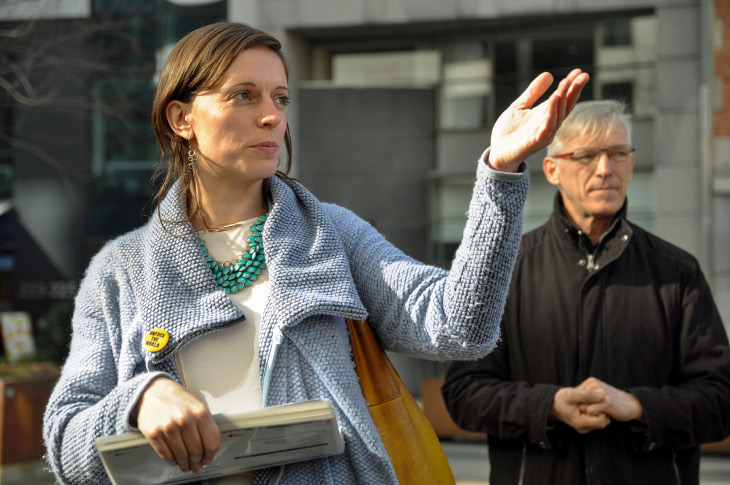 2. Popular education and outreach
2. Popular education and outreach
We ran over 80 lobby tours of the European Quarter for journalists, students, trade unions, civil society organisations and activists. We gave workshops, spoke on panels and ran trainings on investigating corporate lobbying at international mobilisations including the Attac Summer University in France, Tour de Lorraine in Switzerland, the UN climate talks in Bonn, a counter summit in Sweden and the Subversive Festival in Croatia.
3. The power of the gas lobby
We published ‘The Great Gas Lock-in’ - a report about industry lobbying behind the EU’s push for new gas infrastructure and how it could lock Europe into 40-50 more years of dependency on fossil fuels. The report, launched in the days before the UN climate summit in Bonn, was covered by newspapers across Europe and is a useful resource for the movement resisting new gas infrastructure. You can watch a short video and read the report in English, French and Spanish.
4. Challenging toxic trade deals
From publishing a report on how a Canadian mining company is using a legal backdoor and suing Romania in an international investment tribunal, to launching an interactive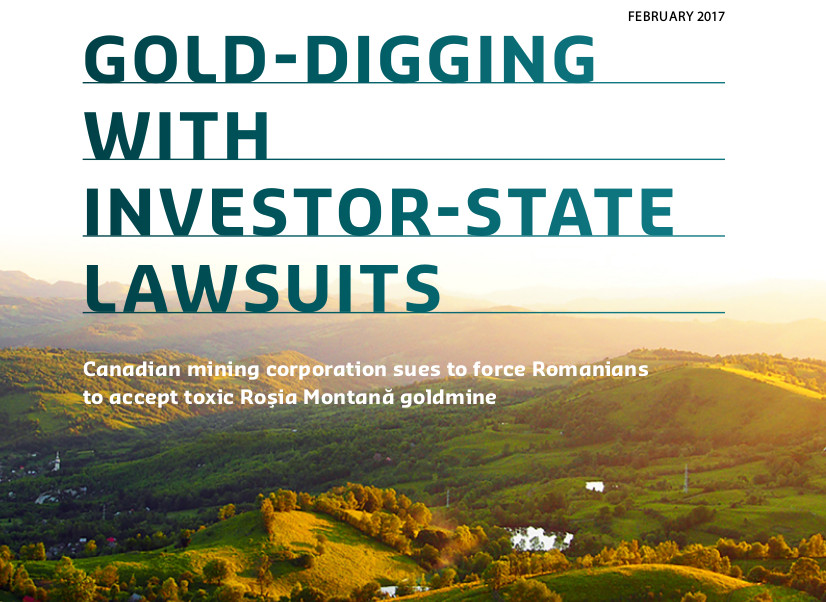
 game to help people get to grips with the EU-Canada trade agreement (CETA), and exposing how corporate lobbies are trying to undermine the trade justice movement, we worked with thousands of activists and allies across Europe to fight new toxic trade deals.
game to help people get to grips with the EU-Canada trade agreement (CETA), and exposing how corporate lobbies are trying to undermine the trade justice movement, we worked with thousands of activists and allies across Europe to fight new toxic trade deals.
5. Exposing the flaws in the EU's pesticide rules
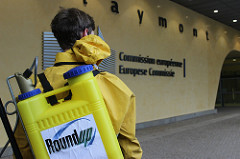 In the context of the glyphosate scandal, we exposed how the current EU rules on safety assessments for pesticides fail to protect our health and environment. Lobbying by pesticide corporations like Bayer, Monsanto, BASF and Dow is keeping all of us exposed to dangerous products while the manufacturers pretend to have "science" on their side.
In the context of the glyphosate scandal, we exposed how the current EU rules on safety assessments for pesticides fail to protect our health and environment. Lobbying by pesticide corporations like Bayer, Monsanto, BASF and Dow is keeping all of us exposed to dangerous products while the manufacturers pretend to have "science" on their side.
The European Parliament and governments like France have now called for these rules to be significantly improved. The necessary overhaul will probably not come from within the EU bodies responsible; they will only happen with sustained pressure from many civil society, MEPs, governments and independent experts.
6. Corporate capture at its most extreme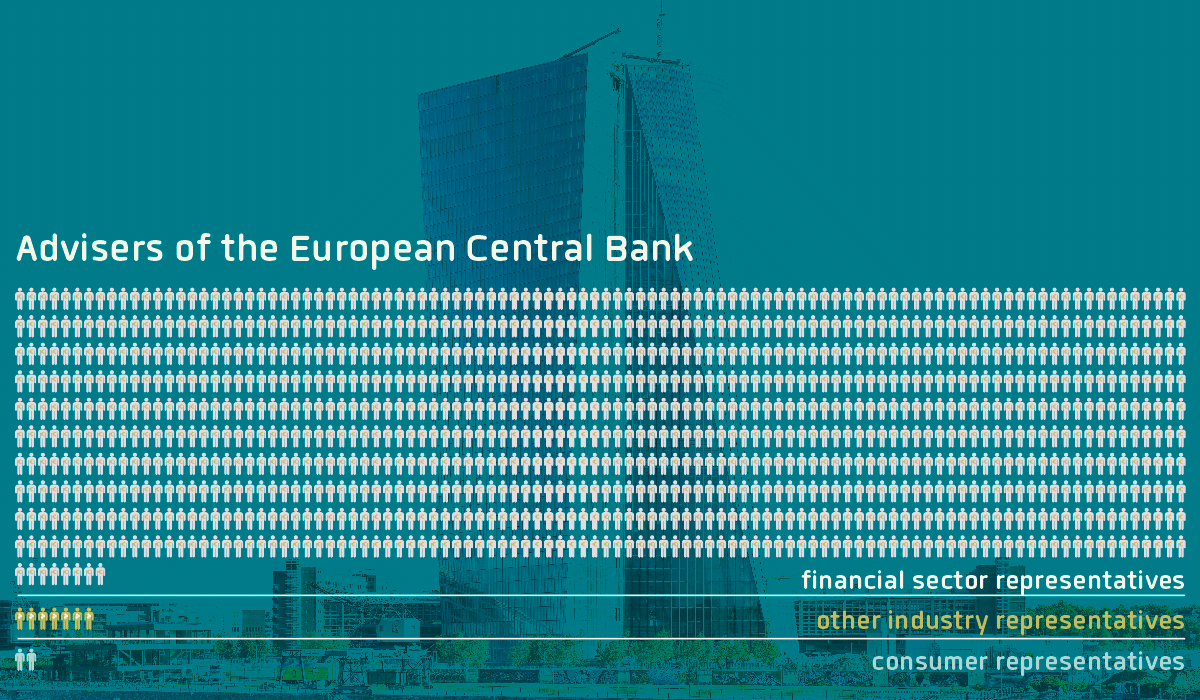
We challenged the European Central Bank (ECB) on a range of issues including the extreme corporate dominance of its advisory groups. Our report showed that of the 517 available seat across all of the ECB's advisory groups, 508 have been assigned to representatives of private financial institutions. More than 98 per cent of advisors in these circles are therefore providing expertise with a touch of corporate spin.
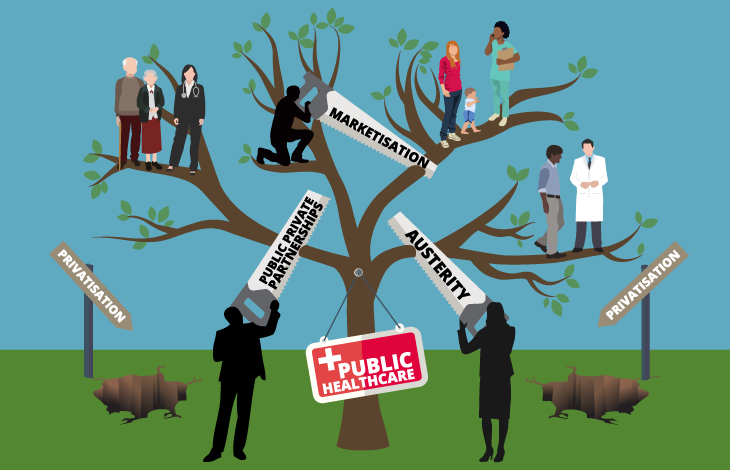 7. Exposing the EU's privatisation push
7. Exposing the EU's privatisation push
We exposed the creeping privatisation of health in the EU and warned of a possible new wave of privatisation after the the European Commission awarded an €800,000 contract to global accountancy and consultancy firm KPMG to study the “operational and fiscal challenges” which state-owned enterprises place on the public purse.
8. Shining a light on lobbying over the EU Council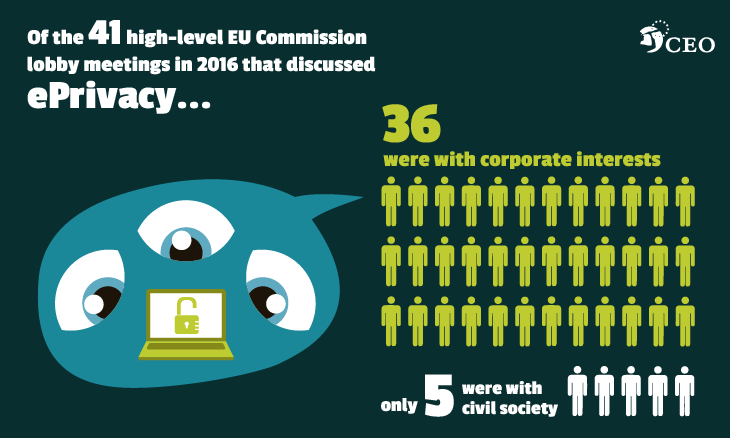
We published a series of investigations exposing corporate lobbying influence over the Council of the EU (governments) and how this impacts on laws and policies, one of the most murky and unknown aspects of EU decision-making. We exposed how on issues such as ePrivacy, 'Roam like at home' policy, and negotiations on fishing quotas, industry lobbies used their influence to try and secure favourable outcomes.
Whether it is via member state ministers and officials in Berlin, Madrid, Paris, London or elsewhere; via the 28 member states' permanent representations in Brussels; or via the Council itself, corporate lobbyists focus on this institution to reinforce lobbying focused at the European Commission and the European Parliament.
9. Corporate influence over the Brexit negotiations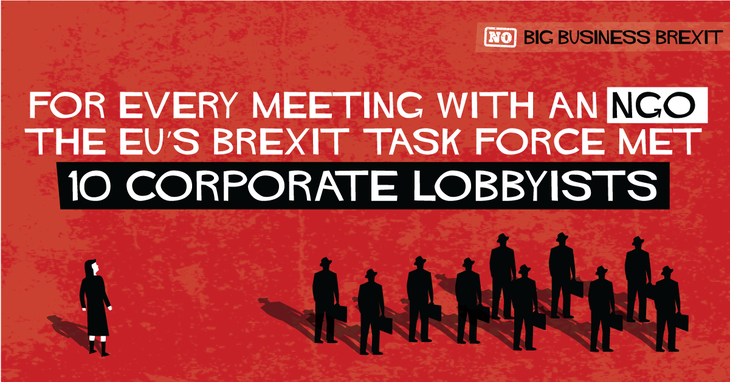
We have been publishing research on the corporate bias in lobby meetings held by UK and EU Brexit negotiators and highlighting the secrecy around these meetings, which risk sidelining the wider needs of civil society and smaller businesses in any future Brexit deal. The concern is that the far-reaching Brexit agreement that will govern the UK’s exit from the EU is not only being shaped at the negotiating table, but also by the lobbyists who are trying to influence positions and red lines.
10. Twenty years of exposing corporate lobbying!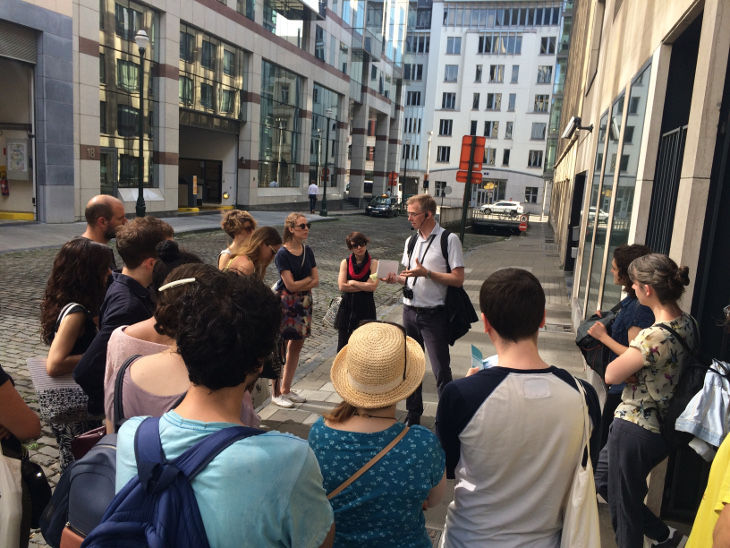
This year, we celebrated 20 years of our work to expose corporate lobbying and its influence on decision-making in the EU. Since we wanted to share our experiences and skills beyond the Brussels bubble, we organised a large number of workshops and debates in many countries across Europe (including Portugal, Spain, France, Germany, England, Slovenia, Austria, the Netherlands); we worked with new groups resisting corporate power at a local level and gained media coverage in newspapers from across Europe.
Thank you to everyone who supported us in 2017. To help us continue our work in 2018 and take on new struggles, please donate today.
